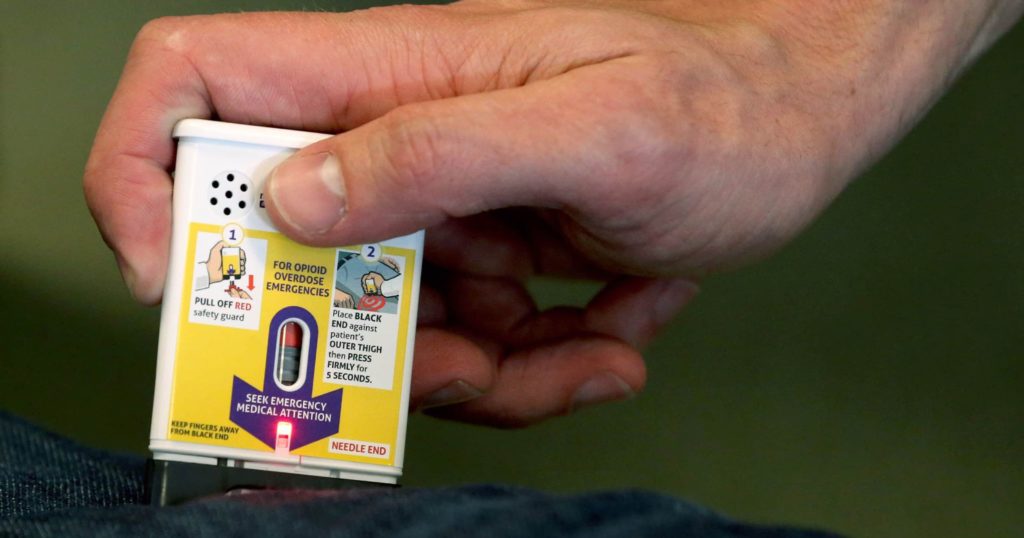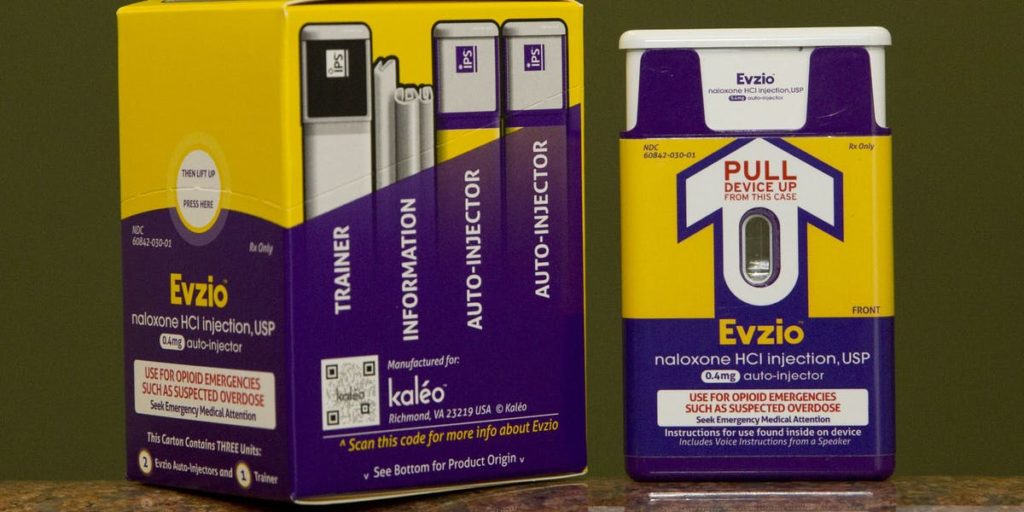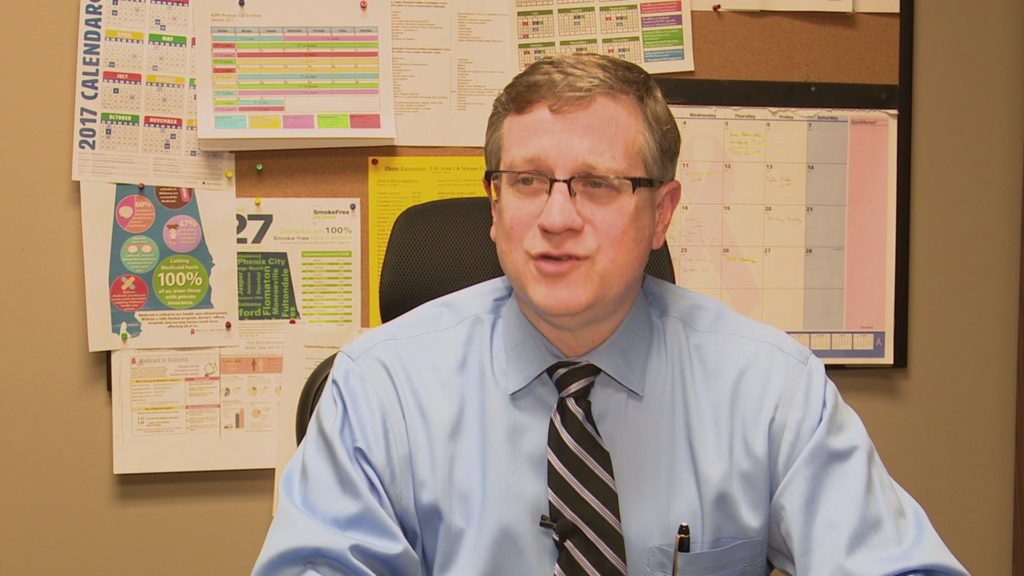Alabama prepares for possible arrival of coronavirus COVID-19

The Alabama Department of Public Health (ADPH) on Wednesday assured the public that as of February 26 there are no known cases of the new coronavirus COVID-19 reported in Alabama. ADPH is a partner with the Centers for Disease Control and Prevention (CDC) and other partners in preparing Alabama communities for the spread of COVID-19. Interim guidance has been sent to the state’s post-secondary schools, the State Department of Education, independent schools and businesses based on the most recent information. ADPH held a webinar to assist hospitals by providing screening guidance and other precautions for staff and the public. While there are no known cases of COVID-19 in Alabama, there are several types of common respiratory viruses circulating across the state including common coronavirus types and influenza. Since current respiratory outbreaks could make it hard to identify an outbreak of this new coronavirus, the public is asked to get flu vaccine if they have not done so. “The best way to avoid infection is what we already know is effective in reducing the risk of transmission,” said Chief Medical Officer Dr. Mary McIntyre. “These are the everyday precautions to help stop the spread of germs, such as frequent handwashing, covering coughs and sneezes, staying home if you have fever, taking flu antivirals if prescribed, and using appropriate equipment the right way every time.” “Do 10 – Fight the Flu” describes the top 10 things to do to fight the flu and avoid infection that also apply to COVID-19. Recommendations are as follows: Get Vaccinated Wash Your Hands Cover Your Coughs and Sneezes Stay Home With Fever Stockpile Supplies Clean and Disinfect Know Your Office Emergency Plan Learn Home Care Call Your Doctor If Symptoms Get Worse Stay Informed ADPH has been receiving names and contact information from CDC of returning travelers from China for the past several weeks. All people being monitored for COVID-19 have been at either moderate or low risk and have practiced voluntary self-isolation. Monitoring has been completed on dozens of individuals with none testing positive.
State health officials plan summit on Alabama infant deaths

Health officials are planning a meeting to raise awareness of Alabama’s worsening infant death rate. The Infant Mortality Reduction Summit is scheduled Friday at Auburn University at Montgomery. Experts will discuss the problem of infant deaths in the state, which has one of the nation’s worst rates. Families who lost children will participate in a panel discussion about their experiences. The Alabama Department of Public Health says the state’s infant mortality rate of 9.1 deaths for every 1,000 live births in 2016 was worse than the year before. The rate means 59,090 children were born in the state in 2016, and 537 of them died before their first birthday. That’s an increase of 43 infant deaths from 2015. There’s no charge to attend the summit. Republished with permission from the Associated Press.
Lawmakers announce opioid overdose devices for high schools statewide

An auto-injection device that helps reverse an overdose from opioids, like heroin and prescription painkillers, is being offered for free to high schools across the state of Alabama. A group of Alabama state senators made the announcement during a press conference Thursday that the manufacturing company Kaleo Inc. is providing the devices that can help prevent someone from dying from an opioid overdose to public and private schools statewide. Each device normally costs $3,000. Schools interested in getting one will be trained by the Alabama Department of Public Health (ADPH) on how to use the device. In May, Kaleo Inc. donated of 872 boxes, which each hold two devices, to carry in state volunteer rescue vehicles. The device called Evzio auto-injects the life-saving drug naloxone and contains a voice recording that talks an untrained non-medical professional through administering it. On Thursday, Dial said the devices have already saved 15 lives in the state of Alabama. Alabama’s struggle with opioids Alabama is at Ground Zero in the opioid overdose crisis — last year the state had the highest national number of opioid prescriptions, more than the state’s total population, according to a report by insurance provider Blue Cross Blue Shield. “Opioid abuse continues to be one of the most critical issues our society faces — over 49,000 Americans died last year from opioid overdoses,” Dial said. “This affects every family in Alabama, and we need law enforcement agencies, schools, churches, and private companies to come together to rid this scourge from our state.”
Kay Ivey wants to see Alabamians become safer drivers

Gov. Kay Ivey wants to see Alabamians become safer drivers. That’s why she’s awarded a $2.8 million grant to the University of Alabama and Auburn University, who are putting their gridiron rivalries aside to team up to help Alabamians become safer drivers. The two universities, along with the Alabama Department of Public Health (ADPH), are gathering traffic safety data and converting it into messages to encourage Alabama drivers to use seat belts and child restraint seats, do not drink and drive or drive while distracted and obey traffic safety laws. “Regardless of your allegiance, when two of our larger universities work collaboratively to save lives and prevent injuries on our highways, our entire state wins,” Ivey said. “I am very grateful for the efforts of these universities along with the Department of Public Health to bring greater awareness to traffic safety. My administration remains committed to keeping drivers safe on our roadways, and I am proud to offer my support to this project.” The University of Alabama’s Center for Advanced Public Safety provides data to determine where crashes are occurring and the causes. The information, much of it collected by ADPH, also examines factors such as seat belt use, distracted driving and sobriety. Law enforcement agencies use that information to increase patrols and monitor traffic in high-crash zones. Auburn University’s Media Production Group produces outreach and awareness campaigns geared toward safe driving. Many of those promotions are tied to national highway safety campaigns like “Click it or Ticket” seatbelt enforcement or “Drive Sober or Get Pulled Over” impairment crackdown and are conducted around major holidays, like Labor Day, when more people are likely to be travelling. The Alabama Department of Economic and Community Affairs (ADECA) is administering the grants from funds made available to the state by the National Highway Traffic Safety Administration. “These efforts along with increased law enforcement presence send a clear signal that dangerous drivers are not tolerated on Alabama’s roads,” ADECA Director Kenneth Boswell. “ADECA is pleased to join Gov. Ivey in supporting the efforts of these institutions to increase highway safety.” Gov. Ivey notified Cynthia Hope, UA director of sponsored programs, John M. Mason, AU vice president for Research and Economic Development and Dr. Scott Harris, state Health Officer, that the grants had been approved.
Health Department warns Zika and West Nile virus reported in Alabama

The Alabama Department of Public Health (ADPH) is urging state residents to guard themselves against mosquitoes as several cases of Zika and West Nile virus have been reported across the state. ADPH officials say they are currently investigating the cases. “Mosquitoes can transmit viruses when they bite, causing illnesses that range from mild to severe or even fatal,” according to Sherri Davidson, interim state epidemiologist. Infection with the Zika virus causes only mild symptoms in the majority of the cases, but the biggest risk is to pregnant women. Zika is now known to cause birth defects and other poor pregnancy-related outcomes if infection occurs during pregnancy. “To date in Alabama, the Zika virus has only been identified in individuals known to have traveled to areas where Zika is known to be endemic. There has been no local transmission,” ADPH explained. Luckily, there are several things Alabamians can do to lower the risk of disease. Dr. Dee Jones, state public health veterinarian, says, “The best way to avoid getting a disease from a mosquito is to reduce the risk of being bitten.” You can help keep mosquitoes off of your skin and out of your yard by following these recommendations from the Centers for Disease Control and Prevention (CDC): When going outdoors, use EPA-registered repellents containing 20 percent DEET on skin or permethrin on clothes. Follow label instructions carefully when using any repellent. Repellents should not be used on infants less than 2 months old. Wear loose-fitting long sleeves and long pants. Install or repair screens on windows and doors. Use air-conditioning, if available. Empty standing water from items outside homes such as flowerpots, buckets, old tires and children’s pools. Clean clogged gutters and clear drainage ditches and pipes of debris. Public health environmentalists often conduct courtesy yard inspections in neighborhoods to help educate the public on mosquito control around the home and mosquito bite prevention.
ADPH reviews ocular melanoma cases associated with Auburn University

The Alabama Department of Public Health (ADPH) on Friday announced they are working in conjunction with Auburn University to review cases of uveal melanoma among 35 former Auburn students and employees in Alabama, following four of the women, who were friends while attending Auburn, making national news headlines last week. Uveal melanoma, often referred to by the media and in the general population as ocular melanoma, is a particularly rare form of eye cancer involving the iris, ciliary body, or choroid, collectively referred to as the uvea. It typically affects only six out of every one million people — but for an unexplained reason, it’s been diagnosed in staggering number of graduates from Auburn University. Auburn officials say ADPH claims it’s too early to “determine that a cancer cluster exists in the area.” “While we have been informed by ADPH officials that it would be premature to determine that a cancer cluster exists in the area, we are cooperating fully with their work. The health and safety of our students, employees and alumni are of the utmost importance,” said Auburn officials. According to a statement released by Auburn, “Auburn University is in close collaboration with ADPH as ADPH currently reviews reports of area uveal melanoma cases for validation purposes. Through this process, Auburn will be actively involved with verifying whether cases of uveal melanoma validated by ADPH also have connections to the university. Upon completion of the data collection and verification stage, ADPH will deem whether or not a cluster of cases exists and that will guide next steps as to any future state or federal agency involvement.” “We have met with researchers and Auburn officials and are offering assistance,” Justin George, director of cancer epidemiology, ADPH Alabama Statewide Cancer Registry, said. A cancer survivor and advocate has provided a list of 35 names of individuals that have self reported to have attended or worked at Auburn and developed uveal melanoma. The ADPH is reviewing medical information for these individuals and will share the results with the research group and Auburn officials. According to the ADPH, findings as of May 3, 2018, are as follows: From 2006 through 2015, there were 316 cases of uveal melanoma among Alabama residents for an average of 31.6 new cases each year. The number of cases in Alabama fluctuates annually, and a 10-year incidence rate trend analysis showed no significant change in the incidence rate over this time period. Numbers will not be reported until the review is completed and validated. Health care professionals advise those who may have concerns they have uveal melanoma to schedule an eye exam with an optometrist or ophthalmologist.
Pharma Kaleo donates opioid overdose-reversing drugs to Alabama

A major pharmaceutical company previously criticized for inflating prices donated 1,744 doses of an overdose-reversing drug to Alabama’s volunteer rescue squads to combat the opioid crisis, the company announced Wednesday. Kaleo Inc. donated of 872 boxes, which each hold two devices, to carry in state volunteer rescue vehicles, the company announced at a press conference at the Alabama Capitol. The device called Evzio auto-injects the life-saving drug naloxone and contains a voice recording that talks an untrained non-medical professional through administering it. “This is an unbelievable thing happening today, and it’s going to save many lives,” Republican state Sen. Gerald Dial said. Dial said the donation will last Alabama three years. Kaleo Vice President of Corporate Affairs Mark Herzog didn’t commit to extending the grant at the press conference. Dial said he hoped the Alabama legislature would reach a more permanent solution before the drugs run out. Kaleo came under fire for raising the price of the prescription drug from $690 per box in 2014 to $4,500 in 2017. Last month the company said it would sell the drug for $360 to government agencies. Narcan, an alternative device that administers naloxone through nasal spray, costs less than $150 for two doses. There were 756 overdose deaths in Alabama in 2016, the Centers for Disease Control and Prevention reported. The state’s overdose death rate spiked 82 percent over the last decade. CDC said 40 percent of overdoses nationwide are from prescription drugs. Last year, Alabama had the highest national number of opioid prescriptions — more than the state’s total population — according to a report by insurance provider Blue Cross Blue Shield. “Opioid abuse is a tragedy that strikes close to the hearts of communities throughout Alabama, devastating families and destroying lives,” Alabama Attorney General Steve Marshall said in a written statement Wednesday. “One of our most valuable tools is to equip emergency responders with antidote medication that can be a matter of life or death for overdose victims.” In December 2016, the Alabama Department of Public Health issued an order to ensure that naloxone is available to any person at risk of an overdose, even without a prescription for the drug. Alabama Gov. Kay Ivey established a council to combat the opioid crisis in 2017. This year, the Alabama legislature voted into law one of the main recommendations of the council — criminalizing trafficking of fentanyl, one of the most powerful and lethal opioids. The law sets a mandatory minimum sentence for trafficking the drug based on weight. The state will train local volunteer rescue squads to administer naloxone using the donated Evzio device starting Friday. Republished with permission from the Associated Press.
Scott Dawson calls for investigation of all Alabama abortion clinics

Gubernatorial candidate Scott Dawson called for the investigation of all Alabama abortion clinic’s on Friday; after it was reported that a Montgomery abortion clinic failed to report potential sexual abuse 13 year-old patient. According to AL.com, the girl first visited the clinic in January 2016 and gave the clinic a birth date in July 2000, which would have made her 15. Two weeks later when she returned to have the abortion she brought her birth certificate showing that she was born in July 2002, meaning she was actually 13 at the time the abortion was performed. The girl had a second abortion in April of 2017, when she was 14 years old. In January of this year, the Alabama Department of Public Health (ADPH) sent an inspector to interview the director of the clinic who verified the information and only reported the patient and both abortions to ADPH after the inspection. The clinic has since provided the ADPH with a complete correction plan to revise how it obtains and reviews information from minors. “The news coming out of Montgomery breaks my heart and the apathy exhibited by our Montgomery politicians is angering,” declared Dawson. “When a 13-year-old child—with non-English speaking parents—is given an abortion, without a third-party counselor and no suspicion of sexual abuse and no report, we know Montgomery needs new leadership. Where is law enforcement? If this were a public school employee who had failed to report potential sexual abuse, they would be without a job and under investigation.” Dawson said as Governor he will immediately call for a full investigation of all abortion clinics across the state. “As Governor, I will immediately call for full investigation of all abortion clinics in the State of Alabama and at minimum, I will see to it that the Department of Public Health is held accountable to enforce their own rules, and that entities operating like this will be closed,” explained Dawson. “In Alabama, we treasure all human life—the born, the unborn, and certainly 13-year-old children who may need to be rescued from an abusive situation. Just because a clinic can legally murder, doesn’t mean they get a pass on the laws of this state.” Dawson faces Incumbent governor Kay Ivey, Huntsville mayor Tommy Battle, and State Sen. Bill Hightower in the June 5 Republican primary.
Alabama goes teal to raise awareness of sexual violence

According to the Rape, Abuse and Incest National Network (RAINN), the nation’s largest anti-sexual violence organization, every 98 seconds, another American is sexually assaulted. 1 in 6 American women and 1 in 33 American men have been the victim of an attempted or completed rape. What’s worse is approximately two out of three sexual assaults are not even reported to police. Sexual violence is a devastating national and statewide problem that impacts the lives of many women, men, and children each year. In Alabama, 5.4 rapes are reported daily. Which is why the Alabama Department of Public Health (ADPH) is partnering with the Alabama Coalition Against Rape (ACAR) to unveil “Alabama Goes Teal.” In conjunction with the national Sexual Assault Awareness Month, “Alabama Goes Teal,” will endeavor to increase statewide awareness about sexual violence and to engage the general public regarding prevention options and victim services. On April 13, employees of ADPH and other Alabamians are invited to wear teal in observance of “Alabama Goes Teal.” “The observance is a great way to raise awareness, provide resources for help, and educate the community,” Kimberly Love, executive director of ACAR, said. “’Alabama Goes Teal” will be a reminder to victim survivors that they are not alone and a clarion call to the community that we must eradicate sexual violence in Alabama.” Help is available for victims of sexual violence. In addition to contacting a law enforcement agency and seeking help at a hospital, victims can contact one of the rape crisis centers in their area or call 1-800-656-4673 (HOPE) to be connected to the nearest center.
House approves safety legislation after tragic grease trap drowning

Following the tragic death of a little girl falling into a grease trap last year, the State House on Tuesday evening passed unanimously passed a bill that endeavors to prevent future such accidents. Introduced by Auburn-Republican state Sen. Tom Whatley, SB258, the Sadie Grace Andrews Act requires food establishments to put locking or otherwise secure covers on grease traps. The bill passed the House by a vote of 99-0. Whatley introduced the bill following the death of the bill’s namesake when she fell into a grease trap outside Bruster’s Ice Cream in Auburn, Ala. in October. Surveillance camera footage showed Sadie playing with two of her siblings when she fell through the lid into the 6-foot-deep tank. She was unresponsive when she was found a few minutes later and was unable to be revived. “I think this bill will prevent another needless tragedy under these circumstances,” Whatley said when he introduced the bill. The Sadie Grace Andrews Act cleared the Senate on Feb. 13. The bill now moves back to the upper chamber for a concurring vote before it heads to Gov. Kay Ivey‘s desk for review and to be signed into law. Should the bill become law, food establishments will have no more than six months to comply with the requirements of the bill. Failing to comply will result in a $500 civil penalty to be assessed by the Alabama Department of Public Health (ADPH). Every day the violation is not corrected, it will result in an additional civil penalty. All moneys received from the penalties will be deposited in the State Treasury to the credit of the ADPH to be used for the administration and enforcement of the law.
Personnel note: Alabama appoints Dr. Scott Harris state health officer

Alabama has appointed Dr. Scott Harris as the state’s twelfth state health officer, effective February 21. The position looks over 65 local health departments throughout the state. “I feel honored and privileged that the State Committee of Public Health granted me this opportunity to address the state’s health care needs and challenges,” said Dr. Harris. Dr. Harris has served residents of Alabama for 19 years, and brings with him the wide range of knowledge and extensive experience that come with that caliber of practice. He graduated from Harding University in Arkansas, and then attended medical school at the University of Alabama at Birmingham (UAB) School of Medicine, serving his residency at Carraway Methodist Medical Center. He later returned to UAB to complete a fellowship in infectious diseases, and in 2017 was awarded a master’s degree in public health from the UAB School of Public Health with a concentration in health policy. He also practiced infectious disease medicine at Decatur General Hospital and Parkway Medical Center. “I care a lot about public health, which I think is true for anybody in the job, but what I’d like to bring to it is the perspective of somebody that’s born and raised here, who spent a couple of decades working in private practice and seeing how that works” Dr. Harris told WHNT. In 2005, he became medical director at the Decatur-Morgan Community Free Clinic — the non-profit clinic offers health care and dental care at no charge to low income, medically uninsured local residents. Dr. Harris has also served on many international medical missions to Central America, South America and Africa. He joined the Alabama Department of Public Health (ADPH) as area health officer for seven North Alabama counties in 2015 where has served as acting state health officer for the last six months and currently co-chairs the Alabama Opioid Overdose and Addiction Council. The Talladega native is a fellow of the American College of Physicians (FACP), Infectious Disease Society of America (FIDSA), and a credentialed HIV specialist, American Academy of HIV Medicine. He also served on the Medical Executive Committee, as medicine department chairman and director of multiple committees including infection control, pharmacy and therapeutics, and the surgical care improvement project at Decatur General Hospital and Parkway Medical Center. He is past chairman and current member of the Decatur Morgan Hospital Foundation.
State Health Dept. investigates 100 possible flu-related deaths

This season’s aggressive strain of the flu virus has already claimed several lives in Alabama. The Alabama Department of Public Health (ADPH) released updated numbers on Wednesday confirming that influenza has already taken the lives of two children and seven adults, with an additional 98 adult cases under investigation. The flu is a contagious respiratory illness, spread by a virus. The Centers for Disease Control and Prevention (CDC) is reporting this to be the worst influenza season in over a decade. “In severe seasons in the past over 700,000 people have been hospitalized and 56,000 people died from influenza. We may be on track to reach or even exceed those records,” said Anne Schuchat, CDC acting director. Flu season typically runs from October to May, typically peaking in February. Symptoms include sudden onset of fever, headache, extreme fatigue, dry cough, sore throat, runny or stuffy nose, and muscle aches. Children may also have nausea, vomiting and diarrhea. Although most people who get the flu recover in a few days to two weeks, some develop complications like pneumonia that can be life-threatening, the CDC said. Those at highest risk include people 65 and older, people with chronic medical conditions such as asthma, diabetes, or heart disease, pregnant women, and the very young. ADPH said its still not too late to get the flu shot. The chart above indicates ILI activity is still increasing through much of Alabama. [Photo Credit: ADPH]


